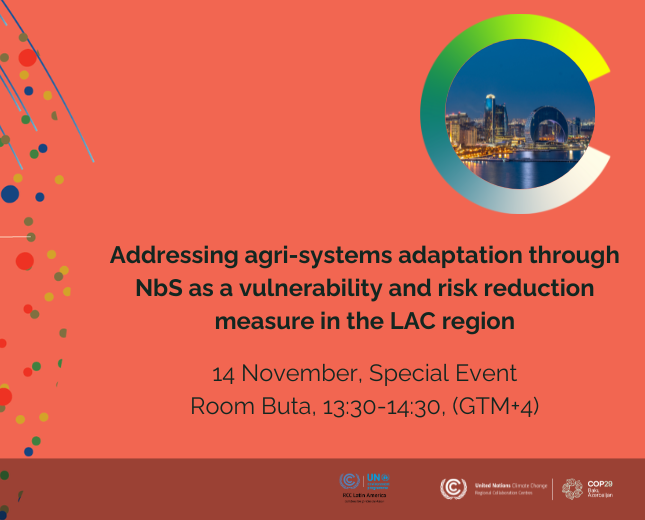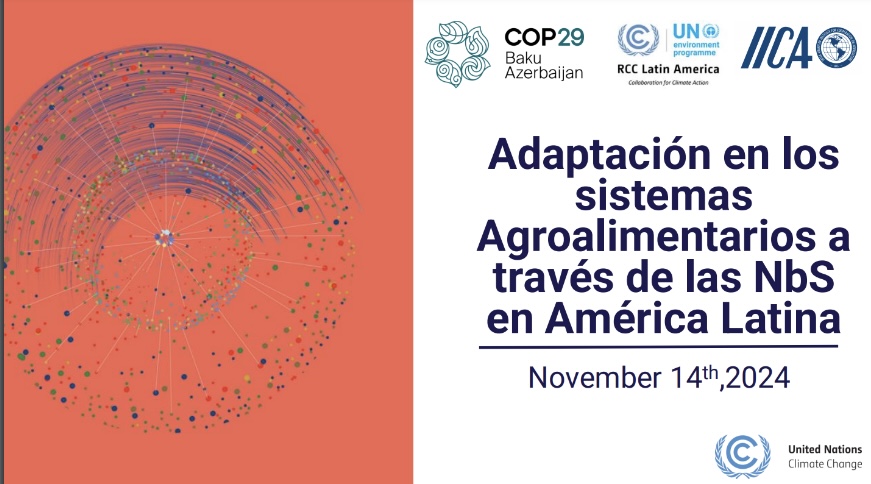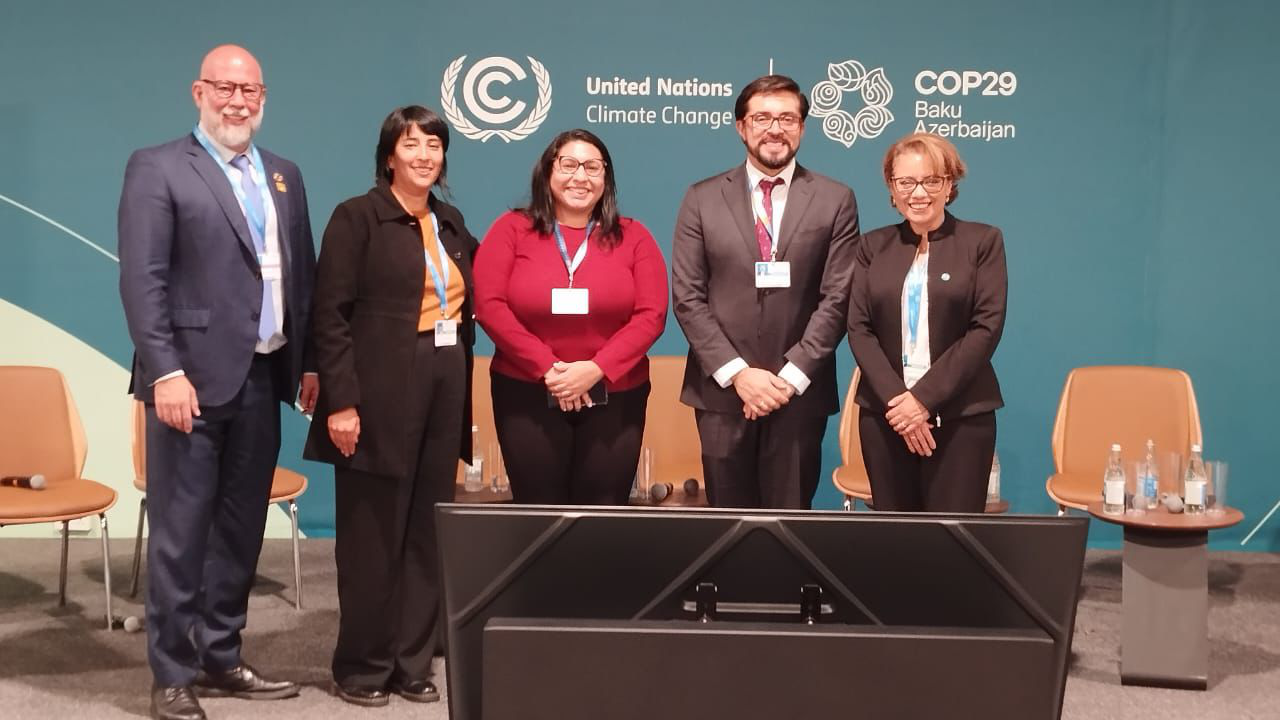Background:
Latin America is among the regions most vulnerable to climate change, with increasingly frequent and severe extreme weather events threatening their economies, particularly in the agricultural sector. Promoting climate adaptation and Nature-based Solutions (NbS) is essential for building resilient agrifood systems while ensuring a Just Transition; one that supports vulnerable communities and fosters equitable, sustainable development.
This event created a space for countries, cooperation agencies, and the private sector to exchange experiences and strategies on how to align climate actions in agriculture with Nationally Determined Contributions (NDCs) and Long-Term Low Emission Development Strategies (LT-LEDS). Organized in partnership with the Inter-American Institute for Cooperation on Agriculture (IICA), this collaborative platform strengthened efforts across the region, to implement climate-resilient agricultural practices that contribute to long-term sustainability and social equity.
Objectives:
- To facilitate a collaborative exchange among countries, agencies, and the private sector in Latin America to share experiences and strategies for promoting climate-resilient agriculture through Nature-based Solutions (NbS).
- The event aims to align agricultural practices with Nationally Determined Contributions (NDCs) and Long-Term Low Emission Development Strategies (LT-LEDS), while ensuring a Just Transition that supports vulnerable communities and fosters equitable development.
- By leveraging diverse perspectives and expertise, this gathering seeks to strengthen regional efforts to build resilient agrifood systems in the face of climate change.
Key takeaways:
-
Keynote Presentation: Perspective of the Regional Agricultural Sector for NDC 3.0 and Roadmap to COP30
IICA opened with an overview of the impact of climate change on Latin American agriculture, highlighting the sector’s vulnerability through recent extreme weather events. The discussion focused on major emissions sources, particularly rice and livestock, and the region's efforts to mitigate these through sustainable practices like the use of Nature based Solutions, to mitigate climate change while supporting ecosystem services, increasing resilience and enhancing food security.
-
Multi-actor Panel Discussion: Pathways to Climate-Resilient Agriculture in LatAm
Representatives from Brazil, Uruguay, UNEP, BCIE, and ASAZGUA discussed strategies for fostering climate resilience in agriculture and ensuring a Just Transition. The panel emphasized equitable access to resources, aligning adaptation with biodiversity goals, and the role of the private sector, especially in bridging government-producer needs. ASAZGUA highlighted data collection and climate awareness, while BCIE underscored financial support for the agricultural sector on climate resilient practices.
-
Presentation: Incorporating Just Transition in Latin America’s New NDCs
The NDC Partnership explored how countries in Latin America are integrating Just Transition principles into their NDCs, with examples from Mexico, Colombia, Chile, and Panama. These nations have set social targets to support a just transition related to their mitigation and adaptation goals, reflecting a commitment to inclusive development and equitable climate action, especially for those most impacted by the transition to sustainable agricultural practices.
Watch the event again:
Credit: UN Climate Change
Credit: UN Climate Change
|
Credit: UN Climate Change
|
Credit: UN Climate Change
|
Credit: UN Climate Change
|
Credit: UN Climate Change
|
Credit: UN Climate Change
|
| |
|
|







